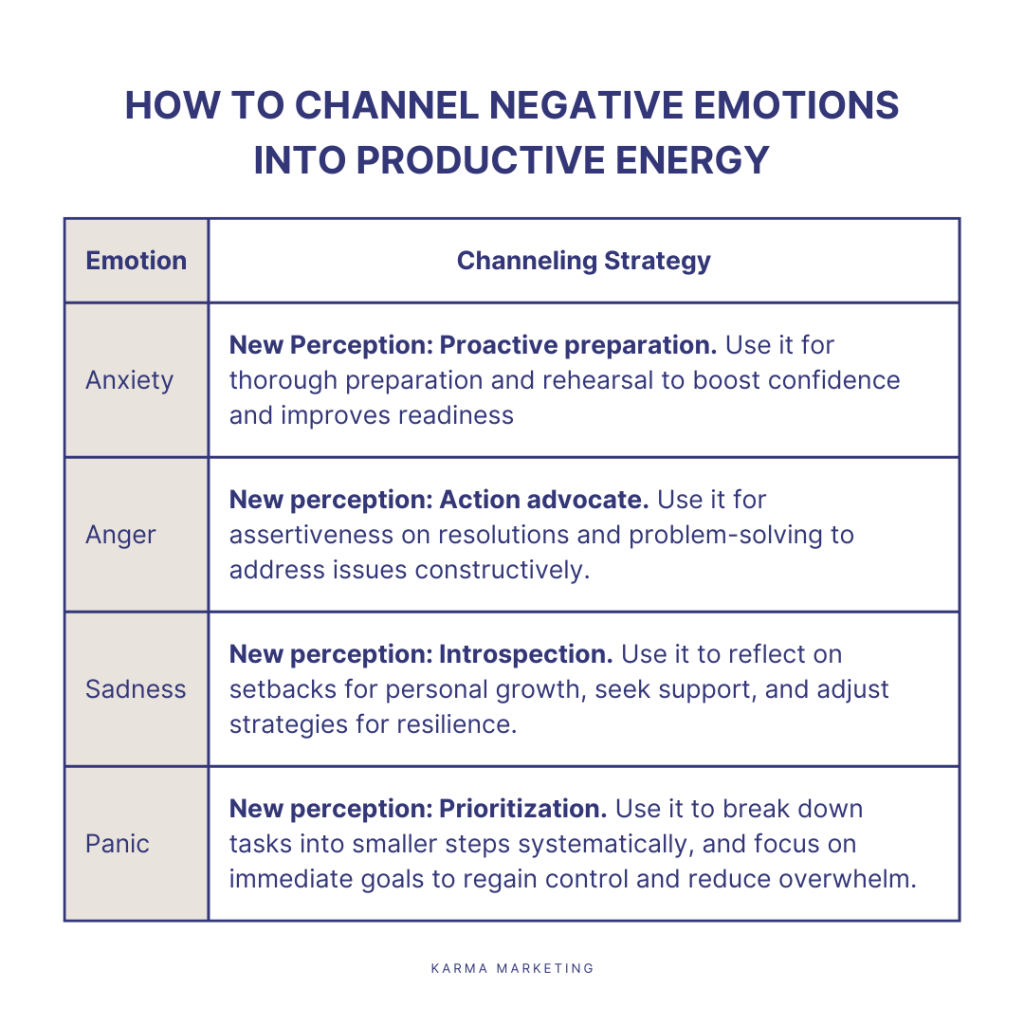Procrastination is often cited as the most common enemy of time management, with countless tips and tricks on how to overcome it. Many believe that once you muster enough willpower to start your task, you’ve conquered procrastination and essentially mastered time management. Just one step of action and you’ve solved it, right? Not quite. There’s another, often overlooked issue that also steals our valuable time: distraction.
Imagine sitting in front of your computer, fingers poised on the keyboard, background music playing to help you focus—yet, you find yourself unable to concentrate. What’s going on? Do I need fresh air? Coffee? Are “binaural beats to help you focus” just a scam? Why. Can’t. I. Focus?
Here’s one reason to consider: Your emotions have control over you.
The Many Facades of Distraction
Distraction comes in many forms, each capable of undermining our concentration in unique ways. Perhaps you can’t stop dwelling on a coworker’s comment, or maybe a song is stuck in your head. You might be distracted by thoughts of other unfinished tasks, or the chatter of multiple voices around you makes it hard to hear yourself think.
Your emotional state might even manifest as physical discomfort. For example, boredom might cause your eyes to glaze over the screen. Fear could heighten your hearing, making you hyper-aware of distant sounds. Meanwhile, it was joy and excitement that kept playing that song in your head, over and over again.
This framework proposes a relationship between different emotional states and their associated distraction patterns. Though of course, it’s important to note that these are general tendencies and individual variations exist.
Stress: Difficulty concentrating, multitasking, external noise sensitivity
Anxiety: Rumination, heightened sensory perception, avoidance behaviors
Overexcitement: Mind wandering, irrelevant thoughts, difficulty focusing
Boredom: Seeking stimulation, procrastination, daydreaming
How Emotion Influences Time Perception
Do you notice how our emotional state can steal our productive time? Instead of maximizing the time we have for work, we often waste it being stuck on a single task because we’re too emotionally overwhelmed to concentrate.
Research by Philip A. Gable, titled “How Does Emotion Influence Time Perception? A Review of Evidence Linking Emotional Motivation and Time Processing,” provides valuable insights into how our emotional state affects time perception and, consequently, our concentration at work.
Gable’s research highlights that emotions are more than just subjective experiences; they are essential tools our brains use to navigate the world and achieve our goals. Emotions shape our perception, decision-making, and behavior, making them integral to how we interact with our environment and pursue our objectives.
Positive emotions, such as excitement and interest, can make time seem to pass more quickly, a phenomenon often referred to as “time flies when you’re having fun.”
On the other hand, negative emotions, like boredom or anxiety, can make time drag. This variation in time perception is crucial in the workplace, where the ability to maintain focus directly impacts productivity.
Social context influences time as well. Pleasant social interactions characterized by rapport, cooperation and positivity speed up subjective time. Conflict or pressure from others has the opposite effect.
Let’s explore how different emotional states can impact our experience of time in the workplace:
- Stressful Deadlines: High-pressure situations can induce anxiety, making time seem to slow down. Employees may become preoccupied with the deadline, hindering their ability to focus on the task at hand.
- Monotonous Tasks: Repetitive or boring tasks can lead to boredom and a perception of time dragging. This can contribute to decreased motivation and increased errors.
- Job Satisfaction: Employees who are passionate about their work and find it fulfilling often report a sense of time flying by. This positive emotional state can boost morale and job performance.
Overall, Gable emphasizes the importance of emotional awareness and the ability to regulate our emotional states for optimal motivation and goal achievement.
Emotional Motivation
Emotions often distract us from even the simplest tasks, but simply numbing ourselves isn’t the answer to productivity. Instead, there’s potential in using emotions to enhance productivity. Even negative emotions can be harnessed constructively.
Gable acknowledges the role of negative emotions in motivation, although they often function differently than positive emotions.
Negative emotions like fear, anger, or frustration can trigger a sense of urgency and motivate action to avoid a perceived threat or address a negative situation. This can be beneficial in situations requiring immediate attention or problem-solving.
Whereas anxiety can heighten our focus on details and potential problems, which can be advantageous for tasks requiring meticulous attention.
In conclusion, not all negative emotions disrupt our concentration. Here’s Gable’s perspective on the relationship between our emotions and our ability to focus:
- Approach-motivated emotions (positive): When experiencing excitement, joy, or strong interest, our focus tends to narrow onto specific aspects related to achieving the goal or activity we find fulfilling. This laser focus can be beneficial for tasks requiring deep concentration and detail-oriented work.
- Avoidance-motivated emotions (negative): Emotions like fear, anxiety, or frustration can also narrow our focus, but in a different way. Here, the focus narrows on avoiding the perceived threat or escaping the unpleasant situation. This can be helpful in immediate danger situations, but can also lead to a “tunnel vision” effect, hindering creativity and preventing us from considering alternative solutions.
We should always be mindful of our feelings toward a task. Ask yourself: Am I enjoying this, or am I looking for excuses to avoid it? These moments call for awareness of our avoidance habits, which can result in unfinished projects and abandoned goals.
Feeling emotional doesn’t mean we’re unable to focus; it means our attention is misplaced. By directing our attention and energy appropriately, we can remain productive regardless of our emotional state.
Once we’re aware, what should our next steps be?
Turning Emotions To Our Advantage
Emotional intelligence isn’t about ignoring our feelings—the very essence of what makes us human—it’s about learning to embrace them wisely.
Gable highlights that emotions not only influence what we feel but also motivate our behavior by directing our attention and influencing how we perceive the world around us.
Instead of struggling to ignore our negative feelings or suppressing our excitement to stay calm, why not try perceiving our emotions differently? Letting them in, and using them to our own benefit? Here is how we can channel stagnant prone emotions into productivity:

Our ultimate tip for making work enjoyable is quite obvious: surround yourself with the right people.
Seek out the right people, not those who operate like robots—always professional and never showing any emotion. Instead, gravitate toward individuals with kind hearts and high emotional intelligence, who won’t overreact to the negative emotions that other team members might express.
They should be able to show empathy while staying focused on the task at hand, giving their teammates space to cool down, and handling things calmly and wisely.
As a team leader, you have the power to create a positive environment. While you’re not directly responsible for each individual’s emotions, you do influence the overall atmosphere of your workplace. You should set a positive example by demonstrating how to appropriately respond to team members who may be distracted by personal emotions.
Emotionally-Aligned Concentration
If you ask most people, being professional means consistently showing up and getting the job done, no matter what. Emotional responses can sometimes be seen as unprofessional because they might interfere with work.
However, emotions aren’t always mere distractions, aren’t they? It’s not always just a thought that takes your eyes away from your laptop–sometimes it lingers in your head even when you’re actively ignoring it. By channeling all our focus away from emotions and toward work, we may inadvertently suppress or deny our feelings in the pursuit of professionalism.
Here’s the thing… We can’t escape our shadows by running away from the sun.
We can not simply ignore our emotions because, well, they’re meant to be experienced.
Emotional intelligence recognizes that emotions serve an important purpose. They evolved as signals to motivate behavior and inform our decision making. Rather than trying to suppress feelings, emotional intelligence teaches us to listen to what our emotions are telling us.
So if they knock on your door in the middle of your work, whether it’s anger or irrational anxiety, allow them in. Take a step back from your laptop for a moment of mindfulness. Take a deep breath, close your eyes, and quietly listen to what they’re telling you.
Now, before you get lost in rumination and overthinking, remind yourself that you’re just taking a moment to listen, not to analyze. You’ll have plenty of time to reflect once you’re home, but for now, let’s acknowledge the emotion, and channel that energy into completing the task at hand.
Events around us and how they affect us are beyond our control. The emotions that arise in response are also beyond our control. What we can control, though, are the actions we take to navigate through them.
Remember, every emotion is temporary. You can wait for the fog to clear, or you can keep moving forward with a steady flashlight in hand.
“The successful warrior is the average man, with laser-like focus.” — Bruce Lee
Karma Wisdom | Curated research written by Anya Junor
